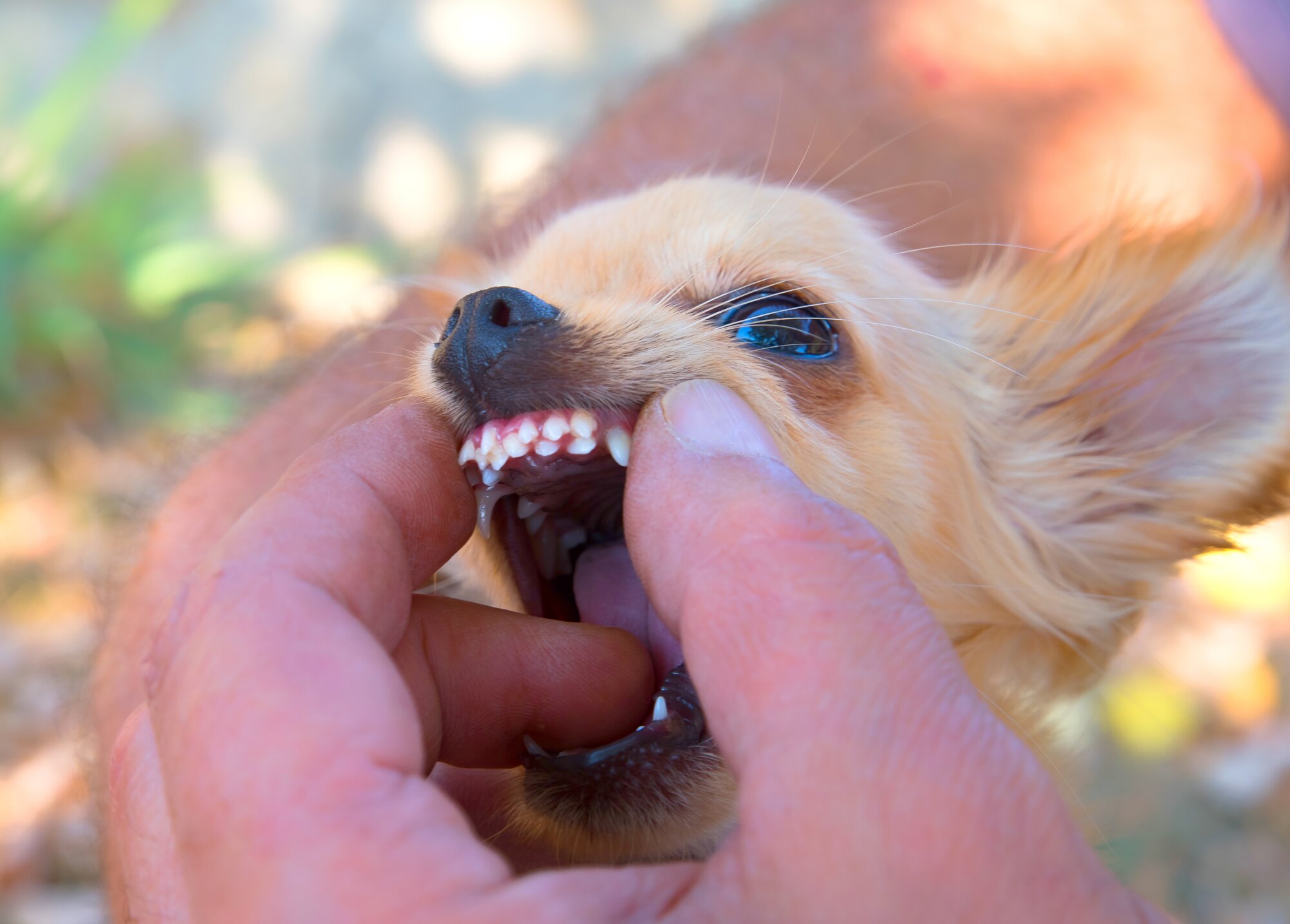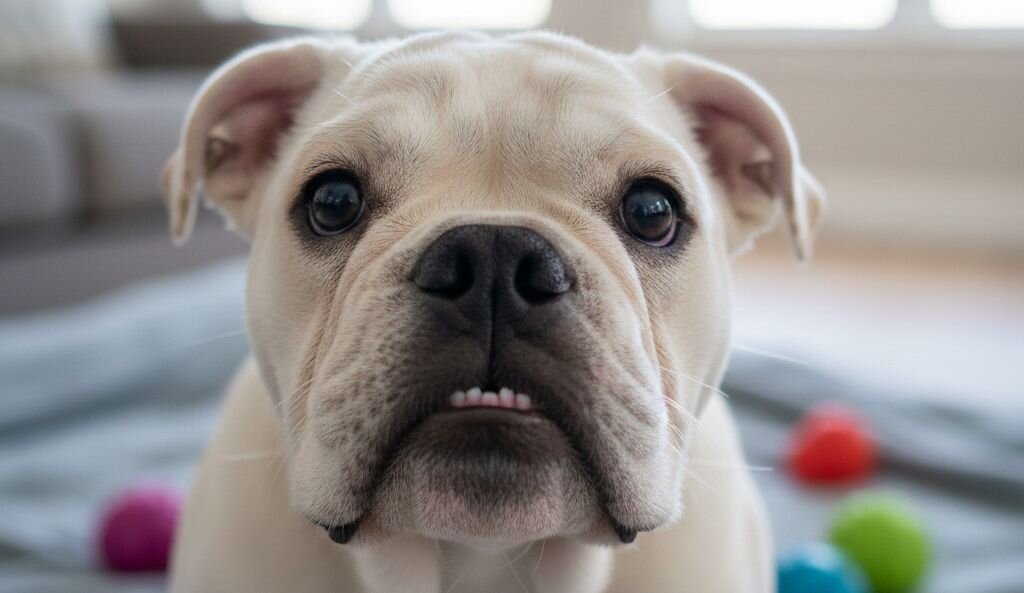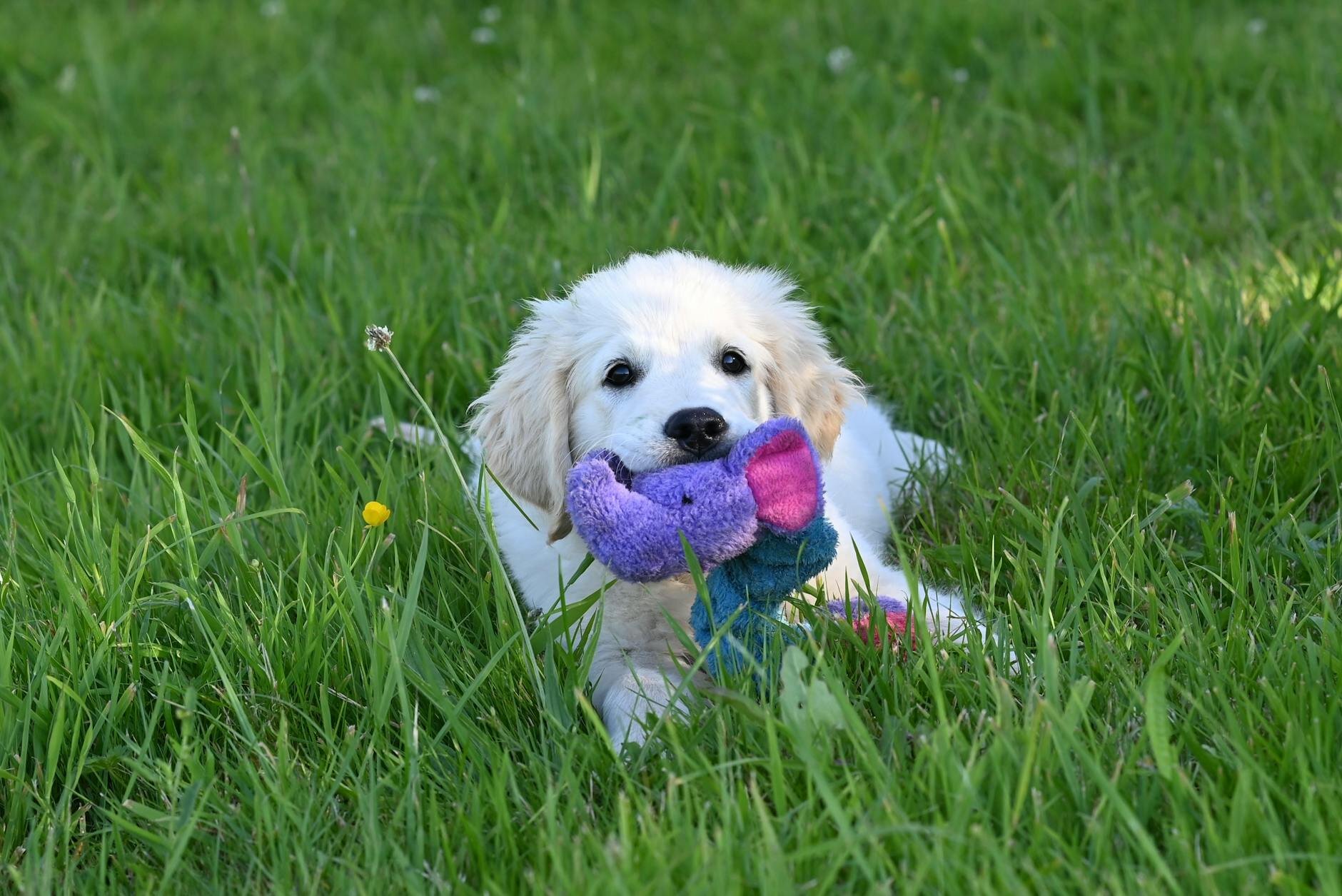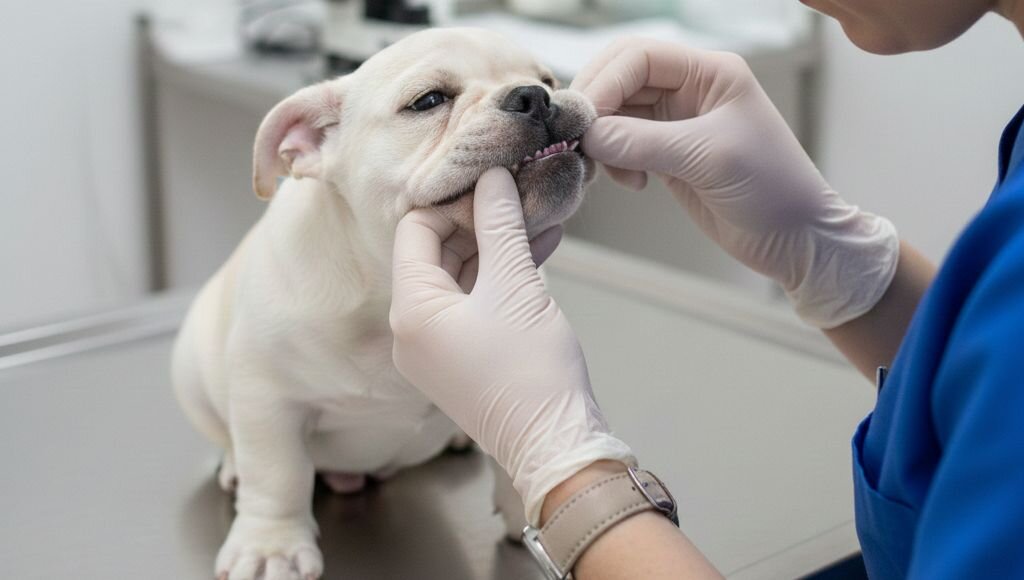Last Updated: 03/02/2026
Puppy Dental Problems: Common Issues and Treatment
Have you noticed that your puppy's teeth just don't seem quite right? Take a read through the common causes and treatments for dental problems in puppies.
Author: Dr Maree Monaghan BVSc (Hons)
Reading Time: 5 minutes - short read
Welcoming a new puppy into the family involves plenty of milestones, from the first "sit" to the first trip to the park. However, one phase that often catches owners off guard is the transition from tiny, razor-sharp milk teeth to a full set of adult chompers. While most puppies breeze through this stage, dental hitches like stubborn baby teeth or jaw misalignments can occasionally pop up. Understanding what is "normal" and what requires a vet's attention is the best way to ensure your pup grows up with a healthy, pain-free smile.
Retained baby teeth in puppies

Puppies, like human babies, are born without teeth and at 3-4 weeks of age they grow their baby or deciduous teeth. Puppies have 28 deciduous teeth which usually fall out during 'teething' when they are 3 - 6 months of age. Some puppies, however, don't lose all their baby teeth when their adult teeth come through. This is most common in small breed pups particularly brachycephalic (short nosed) breeds.The incisors (the teeth at the front of the mouth) and the canines ("eye teeth") are the most likely ones to be retained.
Retained deciduous teeth cause problems because food gets trapped between them, the permanent teeth and the gums which leads to dental disease. They can also cause misaligned (crooked) teeth and discomfort.
Removing retained deciduous teeth is usually a simple procedure and this is routinely done when your dog is being desexed under the same anaesthetic.
Understanding malocclusion: underbites and overbites

Malocclusion means abnormal alignment of the teeth. This can occur due to the length of the jaw being abnormal - this is called skeletal (bone) malocclusion. If the upper and lower jaws are normal in length but there are one or more teeth not sitting in the correct position, this is called a dental malocclusion or malposition.
Underbites
Brachycephalic (short nosed, flat-faced) breeds like Boxers, Shih-Tzus and British Bulldogs have a lower jaw which is longer than their upper jaw. This is commonly known as an underbite or undershot jaw and is considered "normal" for these breeds.
Overbites
A less common malocclusion is an "overshot jaw" where the upper jaw is longer than the lower jaw.
If your puppy has a malocclusion, they will need regular check ups with your vet after they have lost their baby teeth to monitor the position of their emerging adult teeth.
Navigating the puppy teething phase

Your puppy will start teething from about 12 weeks as their baby teeth fall out and are replaced by their adult teeth. It is rare to find a baby tooth as most of them are swallowed, however, you may be lucky enough to find one in your puppy's food bowl or around the house.
Signs of puppy teething:
- Drooling
- Bad breath
- Red and inflamed gums
- Bleeding gums or blood on toys
- Missing teeth
- Reduced appetite
- Increased chewing behaviour
While these signs can be normal during teething, if you are concerned at all by your puppies behaviour, please check with your veterinarian.
Your puppy will need lots of appropriate chew toys while they are teething to soothe their mouths and save your shoes and furniture. Avoid giving your puppy harder dental chews or bones until they have all their adult teeth as baby teeth are a little more delicate and may break if they chew hard objects.
Learn more in our Puppy Teething Guide.
When to see a vet for puppy dental issues

Because dental issues in growing pups can lead to lifelong jaw problems or chronic pain, early intervention is key to keeping those pearly whites in top shape.
When to book a vet visit
- Persistent baby teeth: If you notice an adult tooth emerging but the baby tooth is still firmly in place (creating a "double row"), it's time for a check-up to prevent overcrowding.
- Excessive bleeding or swelling: While mild redness is normal, contact your vet if the gums look deep purple, are bleeding profusely, or if you notice any unusual lumps or discharge.
- Difficulty eating: If your pup is enthusiastic about treats but seems to struggle to chew, drops food, or whines while eating, they may be experiencing dental pain.
- Misaligned jaw: If the upper or lower jaw seems significantly longer than the other, or if teeth are poking into the roof of the mouth or the opposite gums.
- Severe bad breath: "Puppy breath" is famous, but it shouldn't be offensive. A foul or rotting odour can be a sign of infection or trapped debris.
- Broken or fractured teeth: Puppies have very thin enamel; if a tooth snaps during play, it can expose the sensitive pulp and lead to a painful abscess.
FAQs
Watching your puppy grow is an exciting journey, and keeping a close eye on their developing mouth is a vital part of the process. While teething can be a bit messy and involves plenty of chewing, most issues like retained teeth are easily managed during a routine desexing appointment. By providing the right chew toys and staying observant, you are setting your furry friend up for a lifetime of excellent dental health.
References
Veterinary Partner, Lundgren, B, 2020, Retained Baby Teeth in Dogs and Cats Need Surgical Extraction, https://veterinarypartner.vin.com/default.aspx?pid=19239&catId=102898&id=4952450, accessed 2/2/23
Articles recommended for you
From must-have supplies to the first night at home, we'll help you get prepared and begin your puppy journey on the right paw.
Did you know 80% of dogs show signs of dental disease by age three? Start your pup on the right paw with our comprehensive guide to puppy dental health, covering everything from soothing teething gums to mastering the art of daily toothbrushing.
Is your puppy feeling flat? From tummy upsets to parvovirus, our vets explain how to recognise if your puppy is sick, common illnesses to watch for, and the best ways to provide home care alongside professional veterinary treatment.
What should you feed your new puppy? Our vet guide breaks down the best food for small, medium, and large breeds. Learn why size-specific nutrition is crucial and see our top recommendations for a healthy, happy start to life.
Bringing home a new puppy? Our expert vet explains why toy rotation is key and breaks down the must-have toys for your pup's toybox, from comforting plush toys and durable chew toys to fun fetch and squeaky options.
Discover delicious, age-appropriate treats for effective training, dental health, and rewarding good behaviour.
History
Our experts continually monitor the health and wellness space and we update our articles when new information becomes available.
Tue 3 Feb 2026
Edited by Dr Gillian Hill BVSc (Hons)Dr Maree Monaghan BVSc (Hons)
Veterinarian
Dr. Maree graduated from the University of Queensland in 1990 with a Bachelor of Veterinary Science and has worked in a wide variety of practices around Australia and in Papua New Guinea. She has cared for all creatures great and small and has a particular interest in senior pets and horse nutrition

